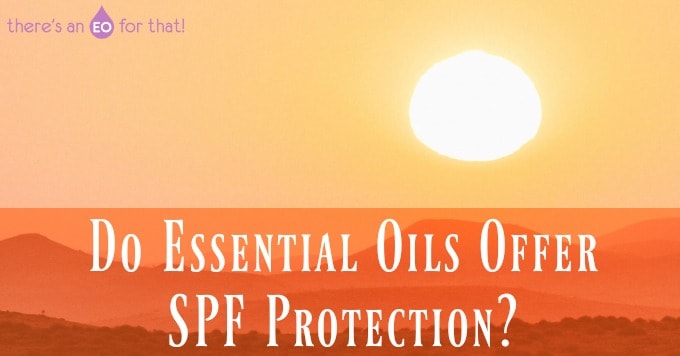
On the journey to cleaner greener living, you may have come across more than a handful of articles on how to make your own sunscreen using all-natural ingredients. Some of these recipes may even tell you that all you need is some raspberry seed oil and a few specific essential oils to ward off a sunburn. But do essential oils actually have SPF protection? And what about raspberry seed oil and coconut oil since we're on the topic?
Do Essential Oils Offer SPF Protection?
There has been increasing interest around the use of essential oils/raspberry seed oil as natural sunscreens in the last few years. I totally get it, I want to be able to make my own sun protection too, but I also want to make sure I’m not needlessly exposing myself to UVA and UVB rays for extended periods of time.
So, what’s the hubbub with essential oils, other natural oils, and sun protection?
Carrot Seed Essential Oil
When thinking about an essential oil that’s supposed to protect your skin from the sun’s harmful rays, the oil that comes to mind is carrot seed essential oil. But does it actually contain SPF?
Unfortunately, many people (myself included until very recently) have confused “carrot seed oil” with “carrot seed essential oil”. Two very different things indeed.
Carrot seed oil is produced by pressing the seeds of the carrot plant just like you would produce any other seed or vegetable oil.
Carrot seed essential oil is produced through steam distillation of the Daucus Carota (aka wild carrot or Queen Ann’s Lace).
Both are completely different not only in their origin and how they’re made, but also in the final product. Carrot seed oil is a non-volatile, viscous fatty seed oil while carrot seed essential oil is a volatile plant essence with completely different properties.
According to Tisserand:
The essential oil is useless as a sunscreen…The fatty oil has some effect, and both fatty oil and essential oil are called “carrot seed oil” – hence the confusion.
Tisserand goes on to say:
I have been asked a few times recently to provide evidence that carrot seed essential oil is not an effective sunscreen. I think the onus is on those who claim that it is a sunscreen to provide some substantiating evidence. The purported 38-40 SPF for carrot seed oil is based on some Indian research where they tested a natural sunscreen product that contained "Daucus carota" AND OTHER INGREDIENTS, and the product had an SPF of 38 in one test, and 40 in another. This does not mean that carrot seed oil of any type has a meaningful SPF. It's more likely that they used carrot seed fatty oil than any other type of carrot extract, but the article does not give us that information. So, carrot seed FATTY oil may be very slightly sun-protective, but it has no known SPF. And, there are no essential oils that meaningfully filter UV rays.
You can read the actual 2009 Indian study HERE.
Another study states:
It can be observed that the SPF values found for nonvolatile oils were between 2 and 8; and for volatile oils, between 1 and 7.
So, as you can see, neither carrot seed oil and carrot seed essential oil have a substantial SPF.
Raspberry Seed Oil
Raspberry seed oil is another popular ingredient that many consider having a high SPF. Many sources claim that it has an SPF of 28-40, however, I was not able to find any studies that suggest that this claim is true.
In the name of research, I decided to try wearing ONLY red raspberry seed oil on an overcast day while hiking a few weeks ago to see what would happen. Keep in mind that I really slathered it on.
Even with the “June Gloom” overhead, I still got slightly burned after 1-1.5 hours and now have visible tan lines. So, even though I felt like continuing my hike, I feel lucky to have turned back when I did because I would have been sunburned much worse.
In essence, I will not be using raspberry seed oil as my main means of sun protection in the future, especially if the sun is out in full force. Don’t get me wrong, I LOVE raspberry seed oil and use it often for anti-aging and oil control recipes, I just won’t be relying on it to keep me protected from the sun.
Coconut Oil
Coconut oil hasn’t been flaunted around as an oil with a particularly high SPF, but it HAS been listed by many bloggers to be an adequate means of sun protection.
The truth of the matter is, coconut oil only has an SPF of about 7, which may falsely give you the impression that using just coconut oil on the skin will be sufficient to give you short term sun protection.
However, this recent study shows that coconut oil actually only has an SPF of 1! Of course, this is not conclusive since coconut oil can vary vastly among different brands, but still, an SPF of 1-7 is not nearly enough to keep your skin safe as you can see illustrated below.
3 Major Reasons Why You Should Avoid Using Essential Oils and Carrier Oils as Your Sole Sun Protection
Aside from the information stated above, there are a few more reasons you shouldn’t use essential oils or carrier oils as your sole means for sun protection.
1. Neither Essential Oils nor Carrier Oils Absorb UV Rays Sufficiently
This study found that carrier oils are unsuitable for blocking UV rays. The substances tested included aloe vera, canola oil, citronella oil, coconut oil, olive oil, and soya bean oil and concluded that none of these oils have the ability to block UV rays. In fact, it was found that these oils only had an SPF of 1!
As for essential oils, Tisserand stated that the highest SPF you may come across is between 1 and 8 but still won’t absorb UV rays.
2. Neither Essential Oils nor Carrier Oils Absorb UV Rays at The Correct Wavelengths
The first study in #1 states that only pure vitamin E oil showed any significant UV ray absorption at 310nm, all other oils fell miserably short. However, the Sun emits UVA and UVB rays somewhere between 290-400nm which means that most carrier oils simply do not absorb UV rays at the correct wavelengths.
Essential oils are known to be poor filters for UVA and UVB rays.
The photo below illustrates the depth at which UVA and UVB rays penetrate the skin.
3. Neither Essential Oils nor Carrier Oils Have Had Their SPF Tested
The truth is, most carrier oils and essential oils have not been properly tested for their SPF as there are countless protocols to follow and extensive testing to perform on different skin colors in order to ensure consistent results when making a marketable sunscreen.
This sort of lengthy testing does not apply to pure carrier oils or essential oils. One reason is that there are SO many variations between even the same essential oil or carrier oil. Lavender EO from France will be different than that same species of lavender grown in the United States. The same goes for coconut oil and raspberry seed oil. The variations between them would be too vast and too costly to conceivably label every variation available on the market. This would mean that each brand would need to conduct its own tests which are often too expensive to consider.
So, what are your thoughts on the SPF of essential oils? Have you come across any hard evidence you can share?
You may also enjoy reading:
Healing Essential Oils for Sunburn
Quick Relief DIY Sunburn Spray
Creamy Winter Sunscreen Balm
How to Eat Your Sunscreen
Natural Sunburn Relief

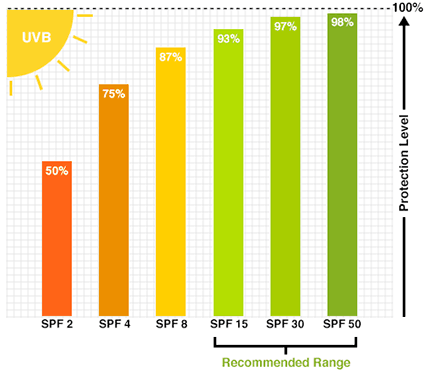
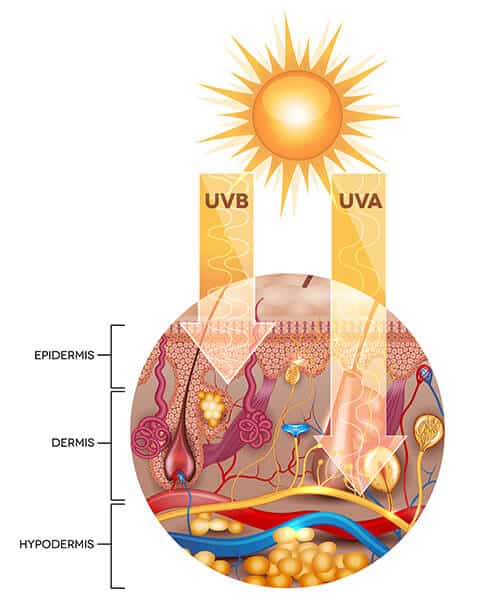
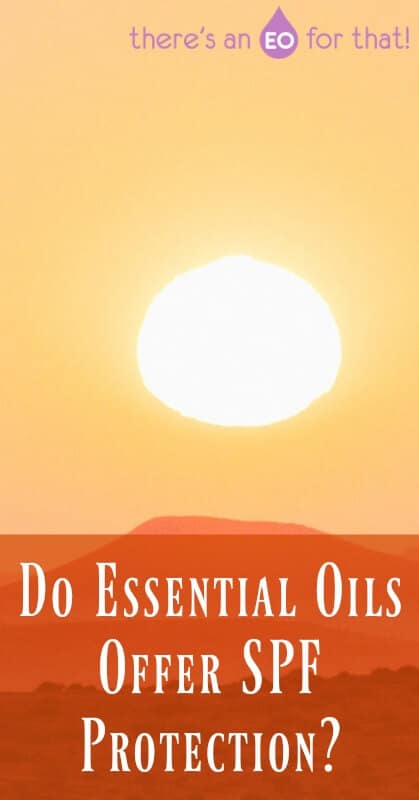
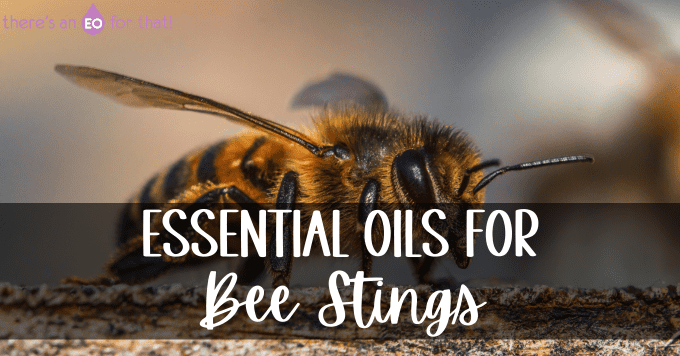
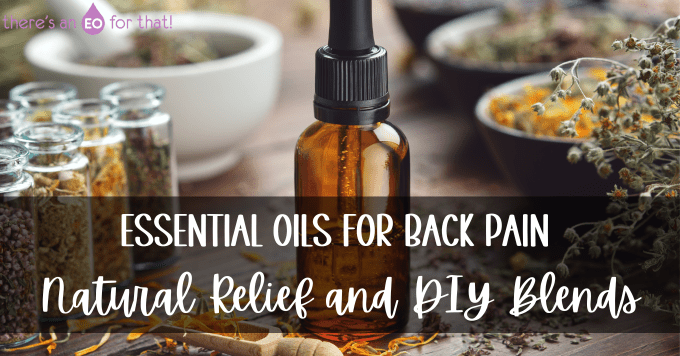
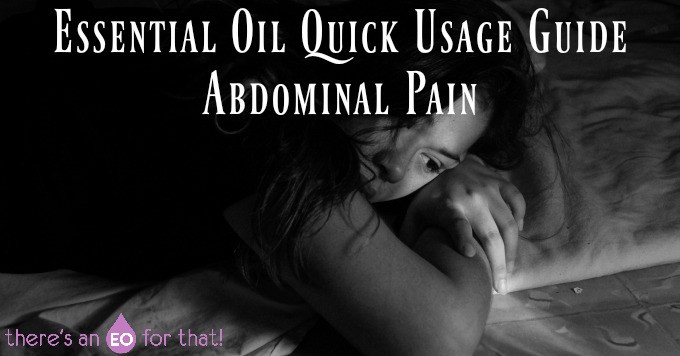
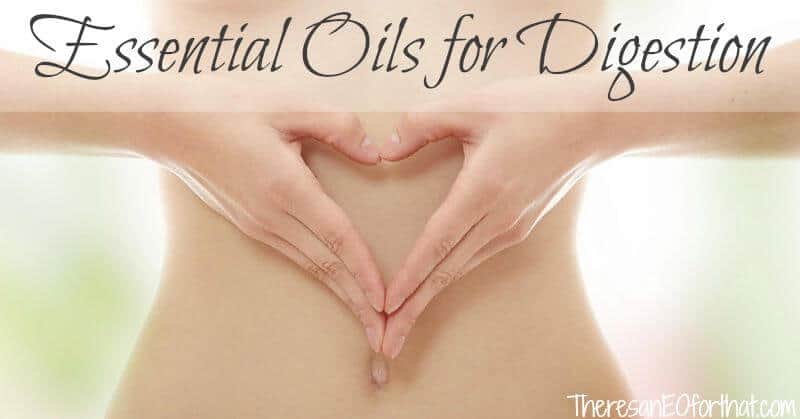
SJT says
I'm very glad to see that you know the difference between a carrier oil & essential oil, which so many bloggers don't. It makes me crazy every time I see this. Countless blogs I've visited, just today, refer to carrot tissue oil as carrot seed essential oil, as if they're the same, giving advice on this exact subject.
It's important to mention that many essential oils & carrier oils can actually cause the skin to burn much faster. Bergamot, citrus essential oils, St John's Wort and many others can cause your skin to literally fry, even if used the day before, as these oils make the skin photosensitive. I've forgotten this on a couple of occassions in the past, using certain carrier oils to sooth the previous day's sunburn, & stupidlycompounded my burn the next day. The pain was unbearable, yet could have been avoided had I been paying proper attention. You can't simply treat these medicinal oils as you would a mass manufactured moisturizer, sunblock or synthetic fragrance.
I wish those without the years of experience to back up their advice would stop trying to act as they are knowledgeable about these subjects after doing 20 minutes of research via Google, or simply reading other bloggers' posts that are dangerously incorrect. Serious burns & other side effects can be the result.
Essential & carrier oils are not simply for cosmetic purposes, or just pretty-smelling fragrances. They should be treated with respect, and used with experience & knowledge as the medicinal plant extracts they are, before bloggers give out incorrect and / or potentially dangerous advice to the general public.
Good post ?
Edith McBain says
Can I use a body lotion, that I have added essential oils and a carrier oil too, under my sunscreen, and still have the full protection of my sunscreen
Tash says
Hi Edith!
That's a tough call! I've had sunscreen "ball up" after applying on top of things before, so it's really hard to say if you will still get the full protection from your sunscreen 🙁 I wouldn't want to say "sure, go for it!" and have you get burned!
Lucy says
I have made and tested my own sunscreen made with coconut oil, carrot seed essential oil ( purchased by mistake instead of corrosion seed oil) and lavender essential oil. I spent several hours in the sun, including being in and on the water and it prevented me quite well from burning (which would have I cued with no protection)
My only concern is, being that I did not burn, does thus mean I have prevented harmful rays from causing possible future skin cancer?
Tash says
That's what's so hard to determine! I know that sunscreen has to go through vigorous testing before it can be sold to the public which is something most DIYers can't do at home. I've just decided to go with clean brands I can trust to give me more peace of mind 🙂